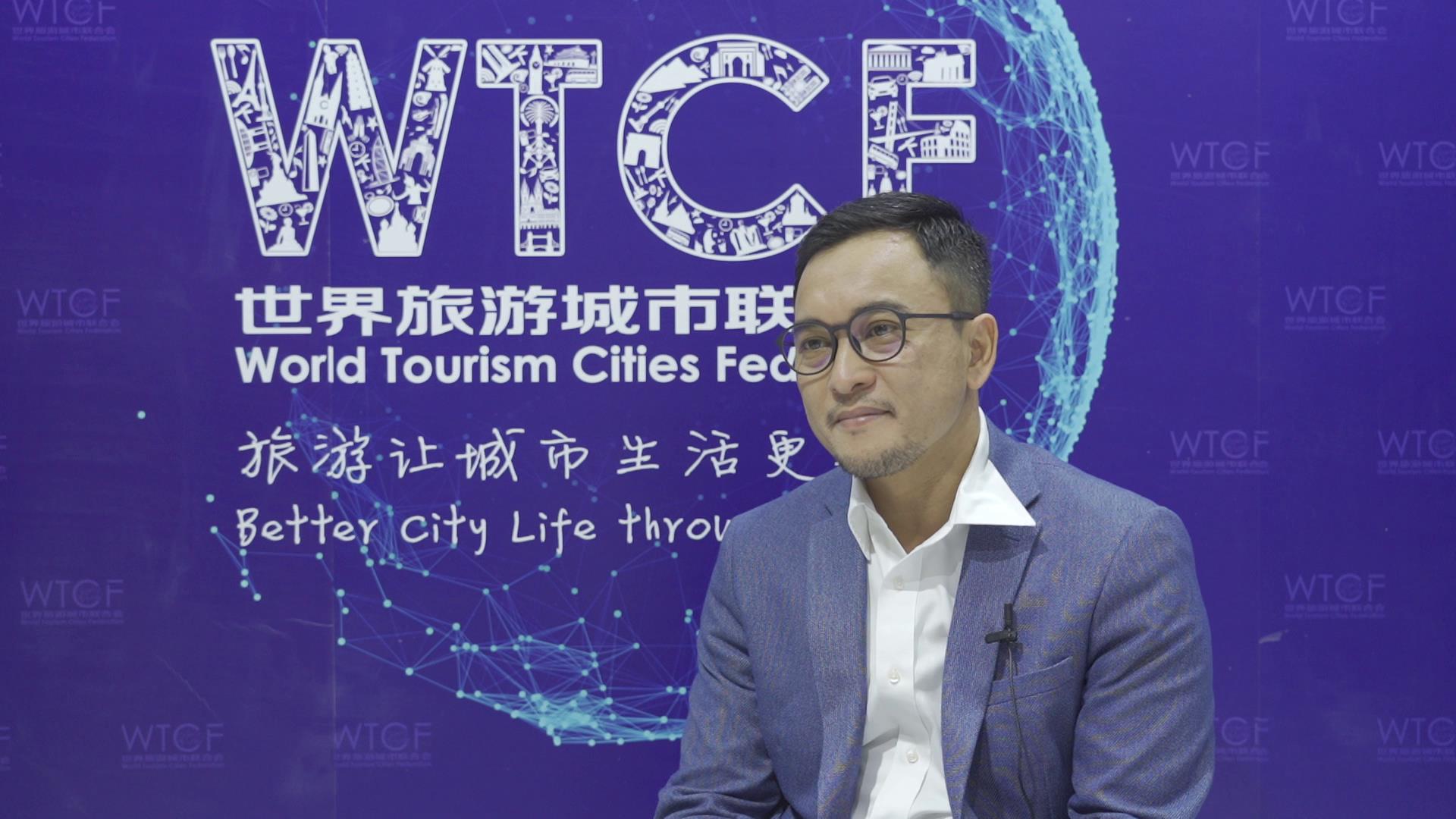Recently, Wizani Rosmin, Consul of the Tourism Section of the Consulate General of Malaysia in Shanghai, had an exclusive interview with WTCF. He has shared his insights about what measures Malaysia has taken to drive tourism recovery, and strengthen tourism players confidence. Also, he expressed his expectation about tourism after the pandemic.
Publish Time:
2021-01-18 16:35:29
Source:
WTCF
According to the report released by the World Travel & Tourism Council, 75 million jobs in tourism are forecast to be at risk globally due to the COVID-19 pandemic. Among those affected by the pandemic, Asia-Pacific region has been hit hardest. Malaysia, a tourist destination in Southeast Asia, has been no exception. In face of the challenges brought by the pandemic, the Malaysian government has introduced a lot of policies such as income tax exemption and financial subsidies to help the tourism players out of the crisis.
Recently, Wizani Rosmin, Consul of the Tourism Section of the Consulate General of Malaysia in Shanghai, had an exclusive interview with WTCF. He has shared his insights about what measures Malaysia has taken to drive tourism recovery, and strengthen tourism players' confidence. Also, he expressed his expectation about tourism after the pandemic.

Wizani Rosmin, Consul of the Tourism Section of the Consulate General of Malaysia
WTCF: As you know, this year, the whole world is affected by the pandemic. So what measures have you taken to combat the pandemic and reduce the industry losses?
Wizani Rosmin: Malaysia is experiencing a lockdown starting from March 11. But also there is a drop in new cases. So the government eased the regulation and started to introduce a movement control order. During that time, the Ministry of Tourism, Arts and Culture Malaysia is aggressively promoting the domestic tourism. And then we can see that it helps the tourism players in Malaysia during that time. We are encouraging the citizens of Malaysia to travel domestically and providing them with the coupon, the voucher for domestic flights, accommodation and also some packages for them to travel and then spend more.
Apart from that, the government of Malaysia introduced a stimulus packages to help those affected in tourism industry. For example, there is income tax exemption. For those Malaysians who are spending the maximum 1,000 Ringgit Malaysia, they can be exempted from the income tax. At the same time, the government provides 600 Ringgit Malaysia, a one-off payment, to the taxi driver, tour guide to help them minimize the impact by the COVID-19.
WTCF: Penang and Melaka are the WTCF's city members, right? What places, or unique culture or customs would you recommend for us?
Wizani Rosmin: Melaka and Penang are listed as UNESCO heritage site in 2008. Both places have developed their cities 500 years ago, so there are a lot of heritages, architecture, heritages of building, and heritages in terms of their culture. There are lots of products, attractions and relics of historical areas in Melaka and Penang. We still maintain some of the old buildings. It's good for visitors and a new generation of Malaysians to experience those attractions.
In terms of the cultural aspect, we have the ethnic called Baba and Nyonya, or the Peranakan generation. During that time, the Chinese traders came to Melaka and Penang to do business. At that time, Melaka and Penang were the meeting points for the Westerners and also for the Easterners. For the Chinese travellers, they came to Melaka and Penang and settled down, and some of them married local people. And now they have Chinese culture but at the same time, they are adapting the local culture. You can see that in their cuisine. While having the local food, they are adapting Indian and Malay spices into their food. So they still maintain their local lifestyle. And then you can experience their personal collectible items, their houses, when you are in Melaka and Penang.
WTCF: Many countries in the world are affected by the pandemic, and the tourism industry especially has been hit severely. What are your suggestions on overcoming pandemic?
Wizani Rosmin: As you know, Malaysia lost 45 billion Ringgit Malaysia from January to June this year. So there is no exception for those who are involved in the tourism industry to escape from this critical moment. So the only way the tourism players can survive during this time is that you need to develop your own skills. You need to reskill or upskill in order to be creative during this time. I would say that you need to find temporary job to maintain your life, to earn a living.
So as for the government of Malaysia, we have allocated 50 million Ringgit Malaysia to provide the training programs to develop their skills, to reskill and upskill for them to be prepared in the outside other than tourism industry and at least for them to get a new job and make a living during this critical moment.
WTCF: So at such a special and critical moment this year, what do you expect an international organization like WTCF to do?
Wizani Rosmin: WTCF has done a quite successful responsibility. You have a series of knowledge sharing by organizing talks, seminars from the experts in the industry. So this is good when WTCF is a platform where tourism players can get knowledge and keep updated on the current situation.
Once the international border is open, I hope that the WTCF can link all the member cities and have a collaboration to strengthen or to encourage people to travel within these member cities. So maybe we can have collaboration on how we want to develop their confidence in travel again when the border is open.